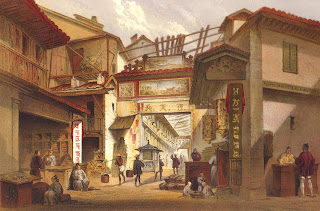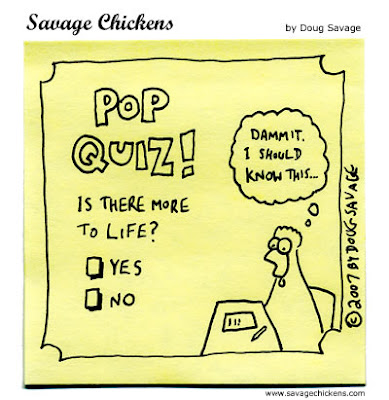I've been wondering if Science and our Christian traditions are in the same boat. Here's a tentative angle on why that may be. It won't appeal to everyone and after further reflection, may not even appeal to me, but no matter, here goes.
B F Skinner equated science with advice or guidance, in my view a powerful idea. For me, the word
advice
is one way to see past the traditional divide between science and religion.
Both science and religion offer advice/guidance - technical advice in one case, spiritual and moral
advice in the other. Good advice is a core aspect of both scientific and religious integrity.
By integrity here, I mean a situation where the advice offered stems from highly visible and altruistic core values applied to particular situations. By altruistic advice, I mean advice offered for the common good in its widest sense.
Political speeches are forms of advice which usually disguise self-interest as altruism. In that respect they don't fool us, but that's not the point - the point is to insinuate ambiguous language into the public domain - to make it respectable and therefore suitable for other uses.
Placing advice/guidance at the centre, highlights the
corrupting role of political power games which in my view are wrecking
both our Christian and scientific traditions for the same basic reason. Power games cannot work when people, especially children, have free access to good advice based on altruistic values outside the political domain. They cannot work when ambiguity is challenged from a position of authority and for the common good.
Scientists don’t just hoover up data, devise theories and
test them via experiments. They aim to offer the
best scientific advice on how the physical world behaves in defined
circumstances - for the common good.
If you do A you will get B.
If you do A you may get B or C but not D.
Advice is a surprisingly useful way to classify what scientists actually do, rather than what fantasists and authoritarians say they do. So scientific
experiments are merely tests of scientific advice. If an experiment fails then the advice that gave rise to it was wrong. If you do A you do not get B and so on.
Tentative advice we call theories.
It’s no different to advising someone on the best place to
get a decent cup of coffee or the best blogging platform, or the best holiday
destinations. Many scientists would no doubt prefer or even insist that science is fundamentally
different to these mundane activities.
It isn’t.
Scientists merely give technical advice about the real world – just like engineers,
which is why the two activities are so similar. Technical advice about complex subjects such as
human beings is difficult, so psychologist have as many problems as their patients. Economics is another complex subject where good advice is difficult to give. Not that the difficulties throttle back the advice.
Religion is slightly different, as here the advice is moral and spiritual - but still advice, still based on altruistic values and the common good.
By keeping the focus on advice based on altruistic values, I think it is easy enough
to see how all kinds of advice can be twisted by political power games. Good
advice can be morphed into coercive advice which is neither disinterested nor altruistic. Eventually, advice may become an overt command - do this or else. The war against smokers
is a particularly good example. Climate science and Islam are two more.
In totalitarian societies, advice doesn’t even have to be
explicit. Big Brother watching you is all the advice you need. A CCTV camera on
the High Street is a form of coercive advice, a symbolic raised fist.
Health advice on cigarette packs has morphed into threats.
Health advice on alcohol is morphing into threats.
Health advice on food will morph into threats.
For centuries our Christian traditions have been tainted by power games. Sound moral and spiritual advice becomes polluted by the politics of coercive power. Religious hierarchy becomes tainted by the elevation of personal ambition over altruistic spiritual and moral advice. Dogma takes the altruistic load off lazy and corrupted shoulders, so why should it surprise us if scientific hierarchy goes the same way?
In some respects it all seems to be an inevitable outcome of
power games. We may criticize the past excesses of organized religion, but the
real culprits are the power games we forever fail to tame.
In the same way, scientific advice has become tainted
with political power games and the corrupting effects of personal gain. The Royal Society and the Met Office are evolving into bastions of privilege. They play power games with their scientific prestige and we should not be surprised that it has happened, nor should we naively expect the situation to improve of its own accord.
Science and our Christian traditions are in the same boat.
Climate science is the most blatant example of scientific advice hopelessly corrupted by political games. To my mind, the antics of climate scientists are mainly interesting for that reason. Problems with the corruption of our altruistic Christian traditions are not only reflected in the corruption of an altruistic scientific
integrity, they share the same cause – non-altruistic power games.
This implies of course that scientific integrity is sliding
down the same slope as our Christian traditions so things are not about to improve any time soon.
Religious integrity and scientific integrity are fighting the same battle
against the same opponents – and both are losing ground.
Selfish power games divert us from simple altruism and sound advice based on the common good – they always have.




























.JPG)
.JPG)






